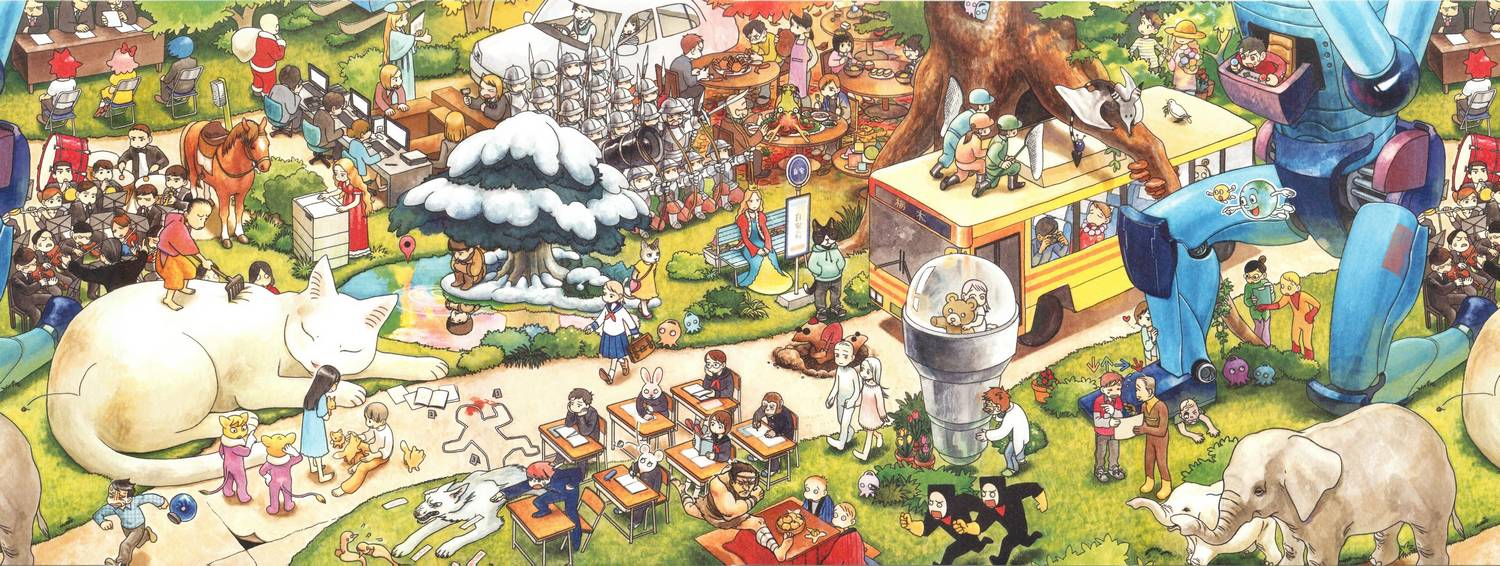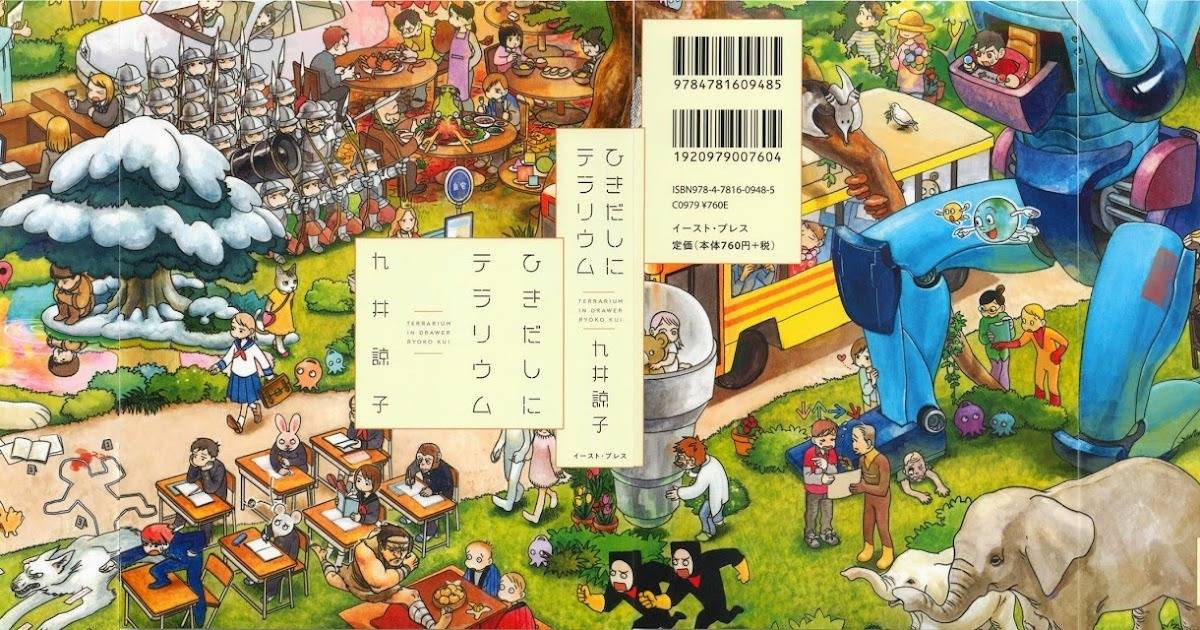A Master of Mundane Fantasy: How Ryoko Kui’s ‘The Terrarium in My Drawer’ Explores the Nostalgic Roots of the Everyday
Popular Now
 Warframe
Warframe
 Sonic the Hedgehog™ Classic
Sonic the Hedgehog™ Classic
 God of War Ragnarök
God of War Ragnarök
 NBA 2K24
NBA 2K24
 Free Fire Max
Free Fire Max
 BeamNG.drive
BeamNG.drive
 Fortnite
Fortnite
 EA SPORT FC 25
EA SPORT FC 25
 Black Myth: Wukong
Black Myth: Wukong
 Fall Guys
Fall Guys 
While most of the world now knows Ryoko Kui for her culinary-fantasy masterpiece, Delicious in Dungeon, her earlier work, the short story collection The Terrarium in My Drawer, offers a much more intimate and personal look into her creative mind. This critically-acclaimed manga, which won an Excellence Award at the 17th Japan Media Arts Festival, is a compilation of one-shots that explores fantastical concepts through the lens of mundane, everyday life. It is here, in these quiet, often humorous stories, that the reader can truly see the nostalgic roots of Kui’s creative process—a deep affection for the absurd, a keen eye for detail, and a playful spirit that finds magic in the most unexpected of places.
The collection is a masterclass in concise and impactful storytelling. Each story, often just a few pages long, is a self-contained world with its own rules and characters. One story might explore the bureaucracy of a job interview for a giant robot pilot, while another might be a poignant fable about a dragon hunter. This ever-changing narrative style is a testament to Kui’s versatility as an artist, but what ties the collection together is its consistent tone of nostalgic, almost wistful wonder. The fantastical elements are not treated as grand, epic adventures, but as simple, everyday occurrences. This approach is reminiscent of classic sci-fi short stories from writers like Ray Bradbury, but with a unique, humorous, and deeply personal twist that is all Kui’s own.
 Finding the Extraordinary in the Ordinary
Finding the Extraordinary in the Ordinary
The central theme of The Terrarium in My Drawer is the fusion of fantasy and reality. The title itself is a perfect metaphor for this idea—a tiny, self-contained world of wonder, hidden away in a familiar piece of furniture. Kui’s ability to ground the fantastical in the mundane is what makes her work so special and why it resonates so deeply with readers. She isn’t interested in saving the world; she’s interested in what people do after the world is saved, or even just what they do on a Tuesday morning.
- The Nostalgia of Detail: Kui’s art is known for its meticulous attention to detail, but in this early work, that detail is often used to evoke a sense of nostalgic realism. The way a character holds a cup of coffee, the way a jacket is folded, or the cluttered mess of a desk all add to the believability of her worlds, no matter how absurd they may be. She makes her fantastical worlds feel lived-in and real.
- Humor and Heartbreak: The tone of the stories in the collection ranges from slapstick humor to quiet melancholy. A story about a man who can eat “symbols” might be a clever piece of magical realism, but a story about a dragon hunter’s last meal is a poignant exploration of loss. Kui’s ability to seamlessly shift between these tones is what gives her work so much depth and emotional weight.
- A Glimpse into the Creator’s Mind: For fans of her more recent work, The Terrarium in My Drawer is a fascinating look into the early stages of her creative process. You can see the seeds of ideas that would later be fully developed in her other works. The way she draws monsters, the way she frames a meal, and her fascination with the little details of her world are all present here in their nascent form.
The success of Delicious in Dungeon has brought a new wave of readers to Kui’s older works, and many are now discovering the magic of The Terrarium in My Drawer. It’s a single volume that stands on its own as a brilliant collection of short stories, but it’s also a valuable piece of a larger puzzle that helps us understand the creative journey of one of the most unique voices in modern manga. The manga is a celebration of the quiet moments in life and a reminder that even in a world of dragons and magic, the most powerful stories are often the most personal ones.
It’s a testament to Ryoko Kui’s unique vision that she can create a world of grand adventures and then, with equal skill, turn her attention to the small, intimate, and often absurd moments that truly make a life.










 Finding the Extraordinary in the Ordinary
Finding the Extraordinary in the Ordinary